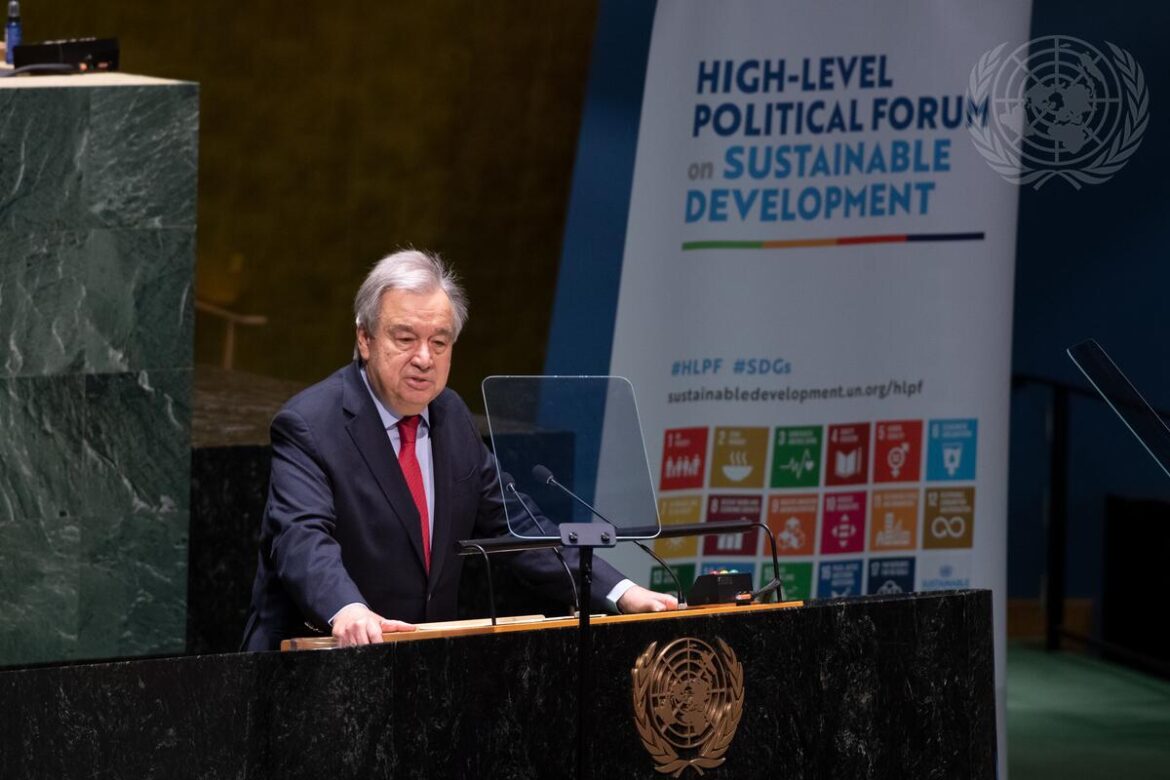By Haruna Gimba
A “rescue plan” for the Sustainable Development Goals (SDGs) must now result in policies, budgets and investment to ensure a more just, equitable and green future by 2030, UN Secretary-General António Guterres said on Tuesday.
He was speaking at the conclusion of the two-day SDG Summit at UN Headquarters, where world leaders adopted a political declaration to ramp up progress to achieve the 17 goals, which are in danger of derailment due to the impact of the COVID-19 pandemic and other global crises.
Goals that address hunger, health, biodiversity, strong institutions, pollution, and peaceful societies are all off-track.
“Now is the time to lift the declaration’s words off the page, and invest in development at scale like never before,” he said.
The political declaration includes a commitment to financing for developing countries and clear support for an SDG Stimulus of at least $500 billion annually.
The Secretary-General urged countries to make the most of the momentum from the Summit, presenting a “development to-do list” for the way forward.
He stressed the need to transform support for the SDG Stimulus “into real investments in developing countries.” In this regard, he called for establishing a Leaders Group that will develop clear steps to get funds flowing before the end of 2024.
Leaders must turn commitments made at the Summit into concrete policies, budgets, investment portfolios and actions.
Additionally, they should strengthen support for action across six key SDG areas, namely food, energy, digitalization, education, social protection and jobs, and biodiversity.
He also advised them to “start planning now for massive increases in investments in social protection”, and to “bring to life” a global initiative to ensure an additional four billion people are covered by 2030.
“As the political declaration makes clear, it’s high time for developed countries to meet their Official Development Assistance target of 0.7 per cent of gross national income,” he continued.
Meanwhile, the upcoming meetings of the International Monetary Fund (IMF) and the World Bank must not be “business as usual,” he warned.
“In addition to recapitalization, we need to see an urgent additional re-channelling of $100 billion in un-used Special Drawing Rights,” he said.
Special Drawing Rights are an international reserve asset developed by the IMF to supplement the official foreign exchange reserves of its member countries and help provide them with liquidity.
The largest-ever allocation, worth $650 billion, was carried out in August 2021 in response to the economic crisis generated by the COVID-19 pandemic.
Mr. Guterres pressed Governments attending the meetings to also bring proposals to “massively leverage private funding in support of developing countries.”
Similarly, he urged them to arrive at the COP28 UN climate conference in Dubai next month with concrete plans and proposals for avoiding the worst effects of climate change, upholding global promises of support, and helping developing countries to transition to renewable energy.
In conclusion, he said “The development to-do list is not just homework. This is hope work. And action is the price of hope.”




